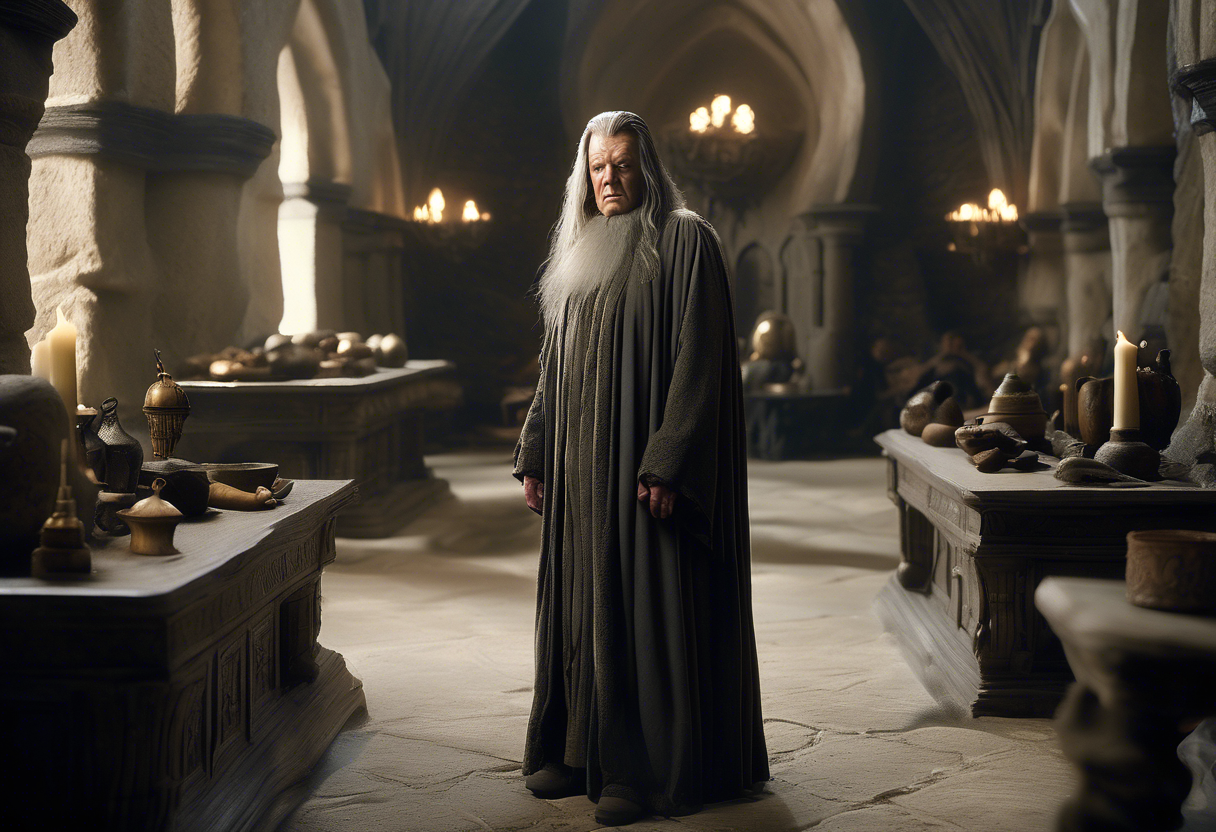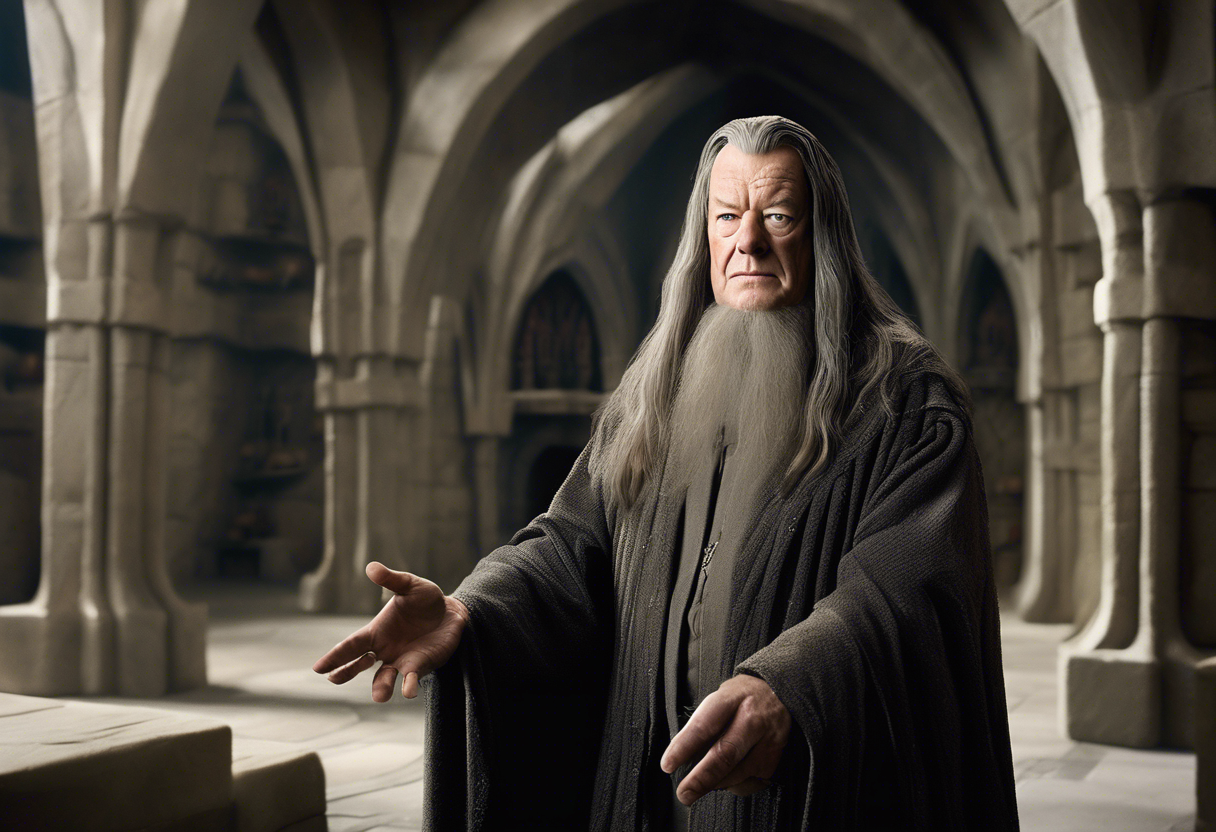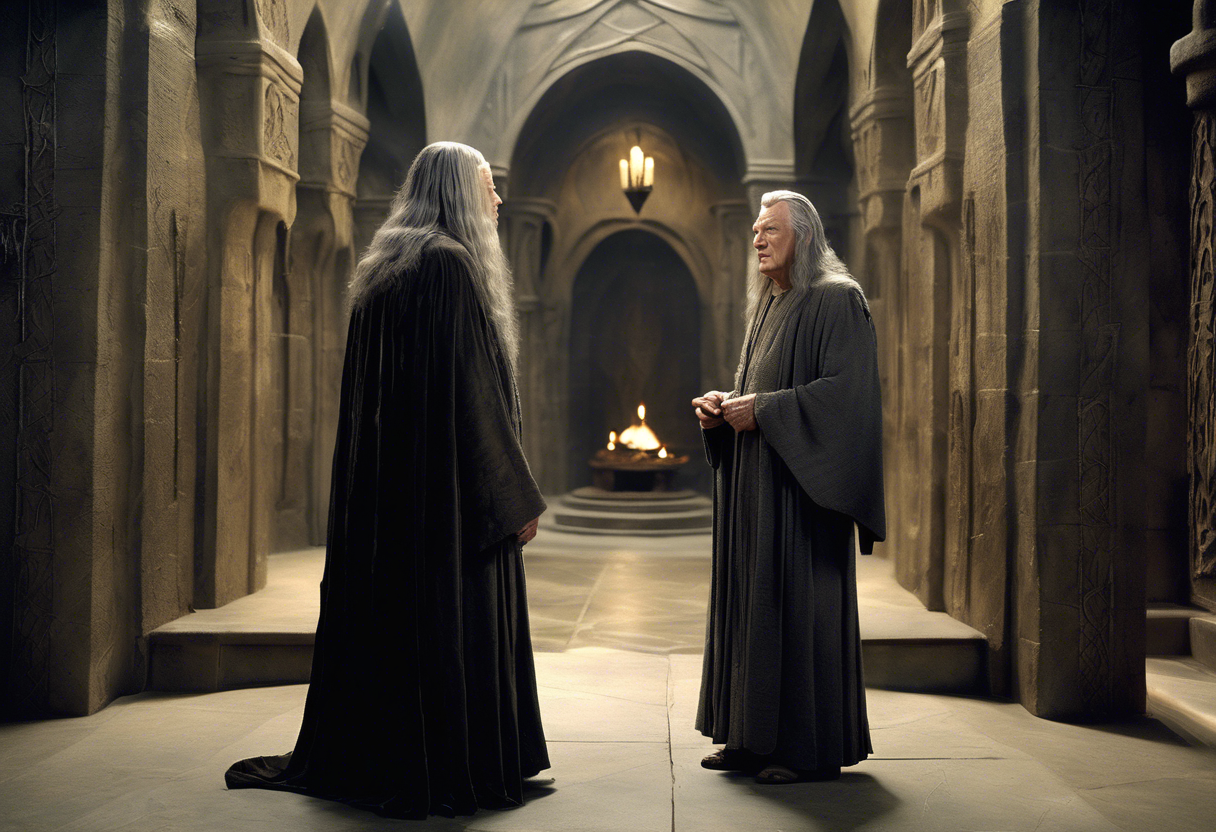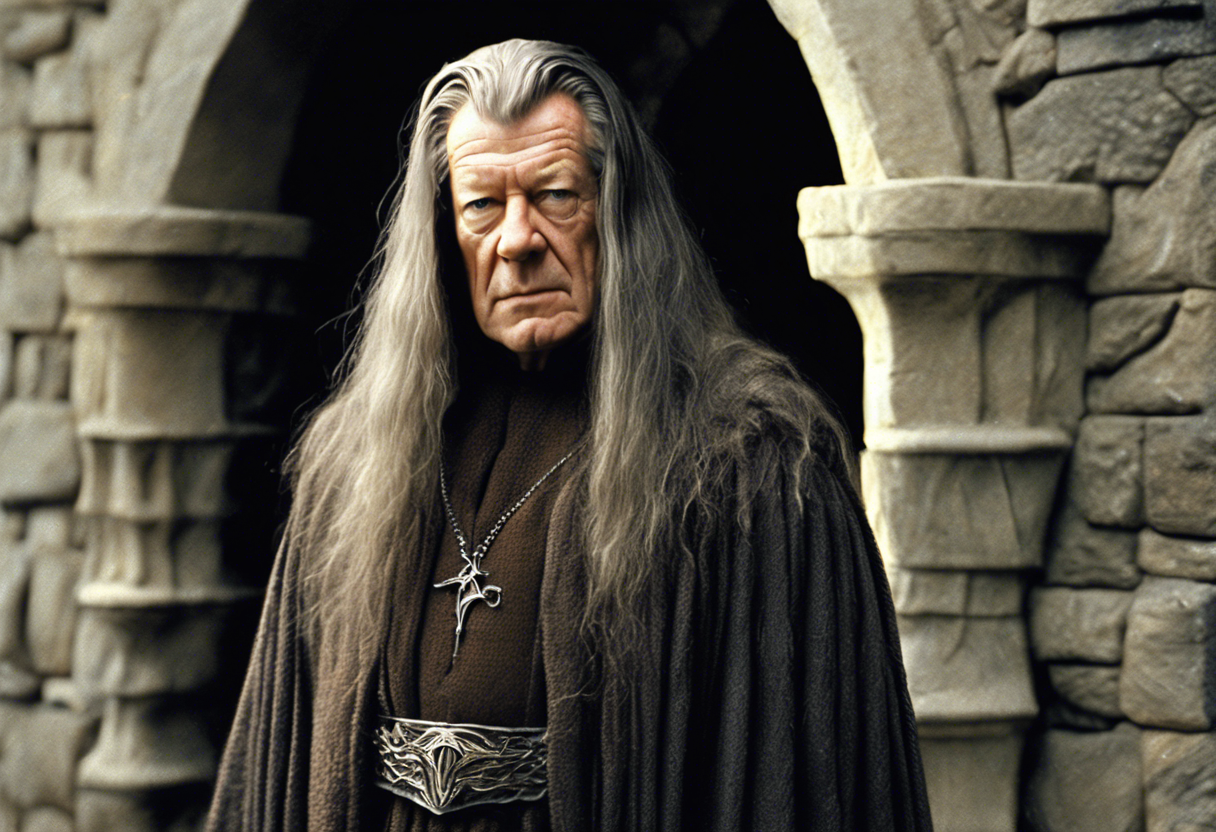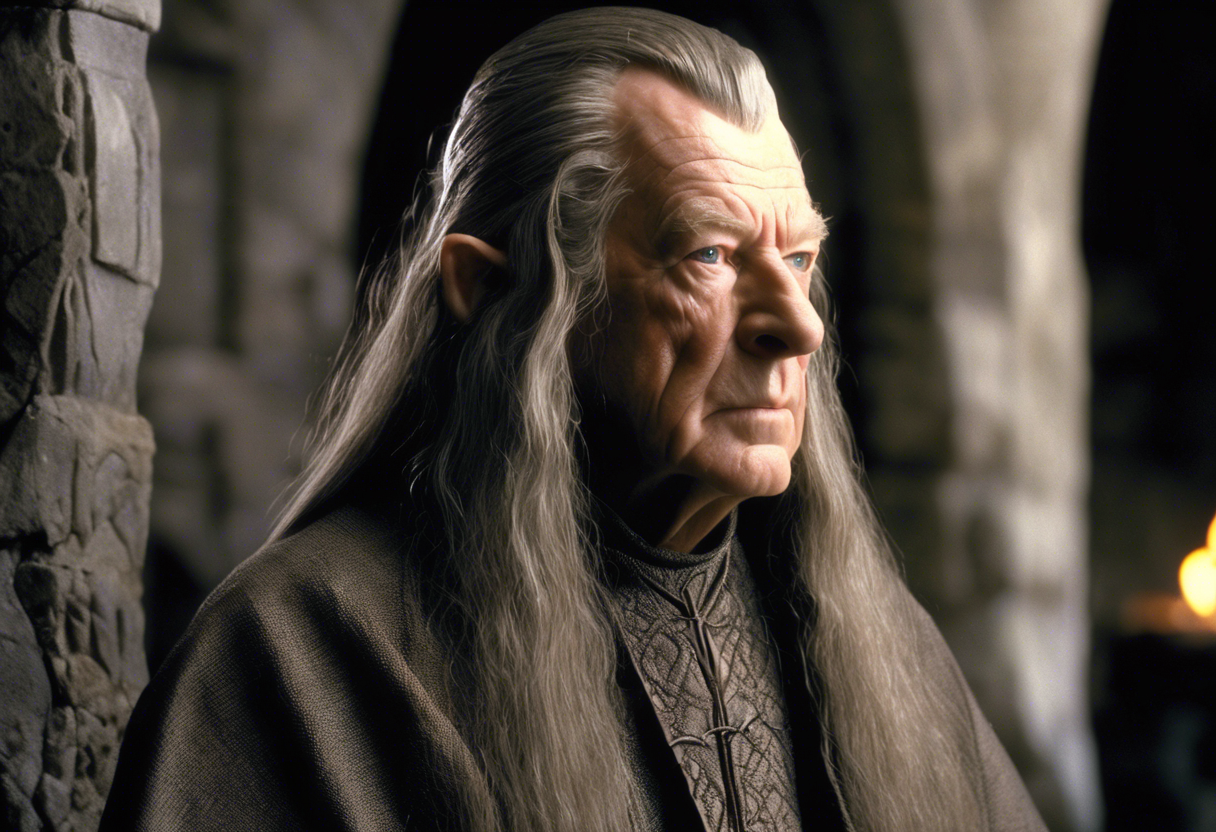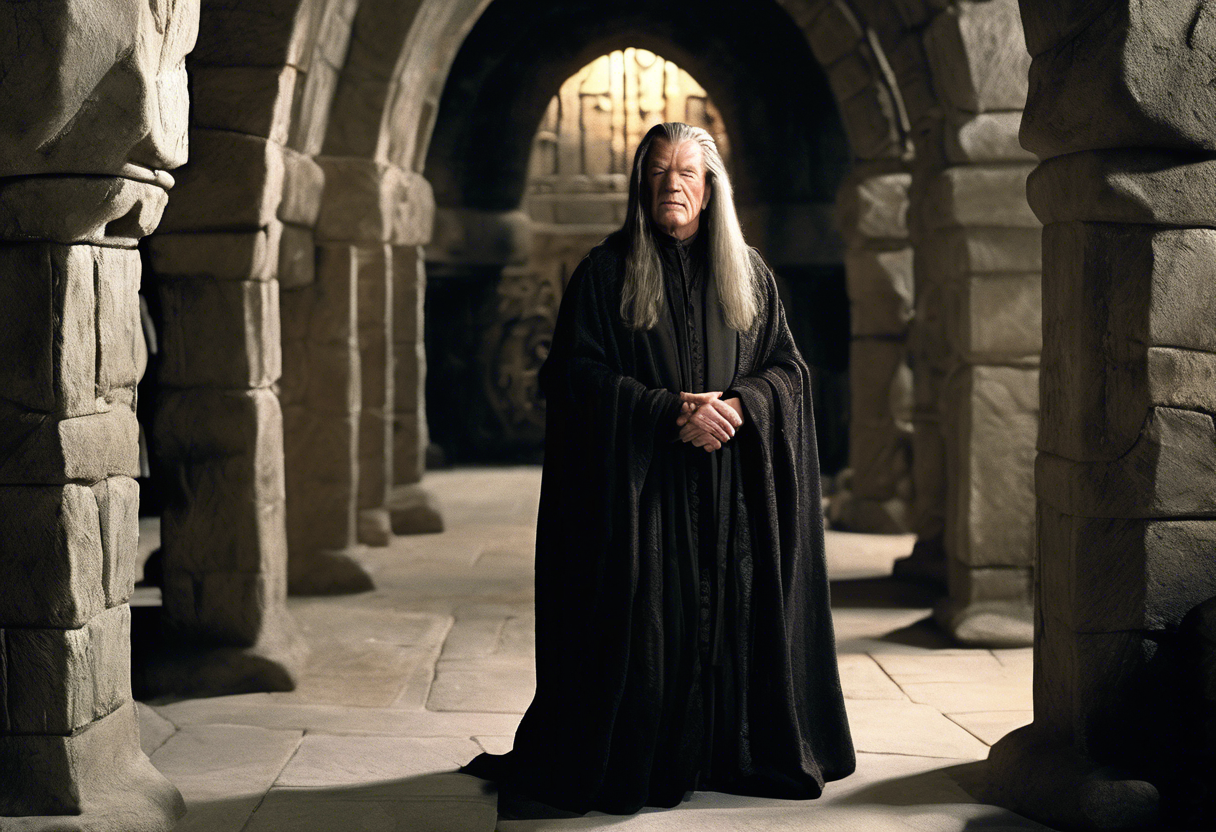Contents
Denethor: The Complex Steward of Gondor in The Lord of the Rings
Introduction
Denethor, the Steward of Gondor, is a pivotal and complex character in J.R.R. Tolkien’s epic fantasy series, The Lord of the Rings. Created by Tolkien as a part of the rich tapestry of Middle-earth, Denethor’s character is deeply rooted in the history and lore of Gondor. He is the son of Ecthelion II and the father of Boromir and Faramir, and his role in the narrative is multifaceted, reflecting both the grandeur and the decline of the Númenórean lineage.
Denethor’s backstory is marked by his lineage and his role as the Steward of Gondor, a position that has been held by his family for generations. His defining traits include his intelligence, competence, and unwavering dedication to Gondor, though these are often overshadowed by his pride, cultural arrogance, and a cold, calculating demeanor [1][5].
Role in the Story
Denethor’s storyline is intricately woven into the fabric of The Lord of the Rings. As the Steward of Gondor, he is the de facto ruler of Minas Tirith, the capital city, in the absence of a king. His journey is one of increasing desperation and despair as he faces the impending doom of Gondor under the shadow of Sauron’s return.
One of Denethor’s most significant decisions is his use of the palantír, one of the seeing-stones created by Sauron, which ultimately leads to his downfall. The palantír manipulates him, showing him visions of defeat and despair, eroding his faith in the survival of Gondor [5].
Denethor’s relationships with other characters are also crucial. His relationship with his sons, Boromir and Faramir, is particularly complex. He favors Boromir, who embodies the traditional martial spirit of Gondor, over Faramir, whom he perceives as weaker and less worthy. This prejudice against Faramir is a significant flaw in Denethor’s character and contributes to the tragic events that unfold [1][5].
Key events involving Denethor include the Siege of Minas Tirith, where he plays a critical role in the city’s defense, and his eventual descent into madness and despair. Convinced that Gondor is doomed, Denethor attempts to burn himself and his son Faramir alive, an act that underscores his complete loss of hope and faith [5].
Character Analysis
Denethor is a character of profound complexity, embodying both noble and flawed traits. He is a man of great strength of will and integrity, who maintains his personality until the very end, despite the overwhelming pressures he faces [1].
His motivations are deeply rooted in his love for Gondor and its people, and he sees himself as destined to lead them through their darkest hour. However, his pride and cultural arrogance often cloud his judgment, leading him to make decisions that are detrimental to those around him [1][5].
Denethor’s character can be seen as a tragic hero. He is a decent ruler who, under immense pressure, loses his grip on reality and succumbs to despair. His reliance on his own strength and the strength of Gondor, coupled with his refusal to accept any hope outside of these, ultimately leads to his downfall [2][4].
Themes and Symbolism
Denethor embodies several key themes in The Lord of the Rings. One of the most significant is the theme of pride and its consequences. Denethor’s pride in Gondor’s past glory and his own lineage blinds him to the present realities and the hope offered by the Fellowship and other characters [1][5].
He also symbolizes the decline of the Númenórean civilization, representing the darker and more dangerous aspects of their greatness. Unlike characters like Aragorn, Faramir, and Imrahil, who embody a more pious and Elf-friendly ethos, Denethor is a reminder of the mighty Empire that once ruled Middle-earth, with all its associated pride and implied cruelty [1].
Cultural Impact
Denethor has had a significant cultural impact since his introduction in Tolkien’s works. In adaptations, such as Peter Jackson’s film trilogy, Denethor is portrayed by John Noble, whose performance brought the character to life in a way that resonated deeply with audiences.
Fans have received Denethor with a mix of sympathy and criticism. Some see him as a tragic figure, a man driven to madness by the weight of his responsibilities and the manipulation of Sauron. Others view him as a villain, whose actions are reprehensible and harmful to those around him [2][5].
Critical Reception
Critics and audiences have had varied interpretations of Denethor’s role in The Lord of the Rings. Some praise his complexity and the depth he adds to the narrative, while others criticize his actions and the harm he causes to other characters.
Denethor’s character has been analyzed extensively in literary critiques, with many noting his role as a gray character, balanced between good and evil. His coldness, pride, and unfair prejudice against Faramir are highlighted as key flaws that contribute to his eventual downfall [5].
Legacy
Denethor’s enduring appeal lies in his complexity and the tragic nature of his story. He remains a compelling and relatable character, embodying the human frailties of pride, despair, and the struggle for power.
In contemporary discussions, Denethor’s character serves as a cautionary tale about the dangers of unchecked pride and the importance of hope and resilience in the face of adversity. He has inspired other works and character archetypes, particularly in the realm of fantasy literature and film, where complex, flawed characters are increasingly popular.
Denethor’s legacy is that of a tragic figure, a reminder of the human condition and the consequences of our actions, making him an integral part of the rich and enduring world of Middle-earth.
References
- https://phuulishfellow.wordpress.com/2018/04/13/the-richard-nixon-of-middle-earth-a-denethor-character-analysis/
- https://thetolkien.forum/threads/denethor-seems-more-a-tragic-character-than-a-villain.30857/
- https://www.idiosophy.com/2016/11/denethor-as-tragic-hero/
- https://reactormag.com/exploring-the-people-of-middle-earth-denethor-ii-steward-of-gondor/
- https://www.shmoop.com/study-guides/return-of-the-king/denethor.html

